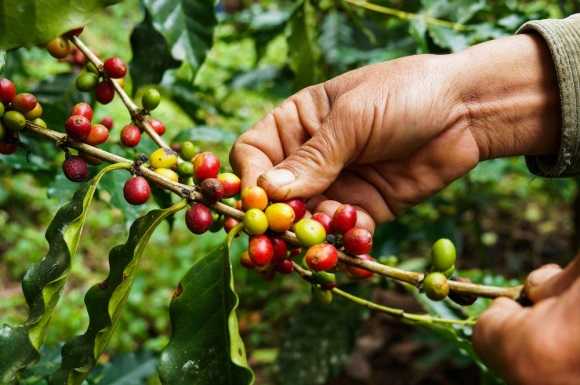BOQUETE, Panama – Somewhere around 1,200 metres above sea level near the misty, green highland town of Boquete in the north of Panama, Landreth Laws leads tourists on a guided walk through coffee plantations.
“Our coffee develops good flavours because it grows in the highlands,” he said. “When we grow coffee in the highlands we know that the temperature is low and the coffee plants have low activity and it helps them develop more flavours.
“Secondly, we grow coffee around the volcano, where the soil is rich.”
Coffee culture is growing in Australia, as our discerning tastes and barista creativity becomes internationally renowned.
The small central American country is keen to secure a bigger wedge of that market, as it emerges as one of the world leaders in growing and producing high-quality coffee beans.
The cooler climate and lush scenery lend themselves to both coffee farmers and tourists, who come to visit Boquete from around the world.
For Mr Laws, who has a lifetime of knowledge about coffee production, the secret to the region’s success is the personal way the coffee is picked and dried.
“The people that know about coffee from Panama, they love it.”
Mr Laws said their coffee, considered now to be amongst the best in the world, was fast becoming a source of pride for Panamanians.
“They consider it the most important coffee around the world when talking about quality — that’s why our coffee is really expensive around the world,” he said.
“We sold, four years ago for $350 [per pound], the most expensive coffee in the coffee [internet] auction, and also last year we sold [for] $275.50, so 100 pounds for $27,550.”
The region’s geisha coffee, which originally came from Ethiopia, is the very top of the range, and Australian coffee buyers are lapping it up.
Wilford Lamastus Jr’s family runs two coffee estates in Boquete, including Elida.
He said the Australian coffee market was increasingly important for Panamanian coffee farmers.
“It’s still not [as] big as the Japanese market for example, or the Taiwan market, but the growth is showing for our farms,” he said.
“We can tell that [the Australian market] is going to become extremely big.
“About three years ago we had three to four Australian customers and now we’ve got eight and so on. And every time we’ve had more
“For Australians it is important — the coffee culture and barista culture — because Australians have shown the world they can be the best in the world in barista competitions.”
But Mr Lamastus Jr said while Panamanian coffee was fast making a name for itself globally, the local market needed attention.
He defended lowering the prices for Panamanians.
“I don’t have a middle man, so it helps. Sometimes the foreign customers complain our low prices might affect their market, but I don’t think so,” he said.
“We are a small country and population, so you can reach them. It’s cheaper access to it.”
Katherine Gregory


















